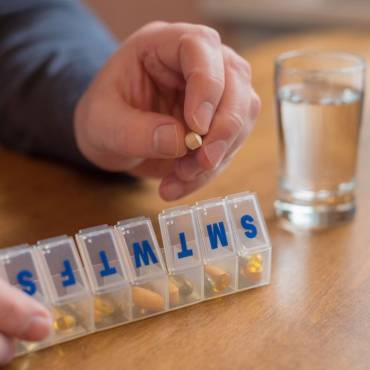Blood clot cause or coagulation occurs when excessive bleeding takes place as a result of blood vessel damage. Clotting can be a severe medical condition. Therefore, it is essential to know the signs and symptoms and get it treated at the right time. Read more to understand what triggers a blood clot, what are the symptoms, and ways to prevent the condition.
What Contributes to Blood Clot?
Blood clots develop in people who have/had surgery or injury, or those who do not move around well. Blood clots can be, and they should be treated right away. You may get a blood clot if you:
- Are 65 or older
- Are obese
- Have had a surgery
- Have had a stroke
- Are paralyzed
- Have varicose veins
- Have a history of blood clots
- Have had cancer or are undergoing a cancer treatment
- Have a bump or bruise
- Are taking hormones for birth control
- Have heart trouble
- Have had a clot before
- Are confined to bed or a chair for much more time
Risk Factors of Blood Clotting
Certain risk factors such as the slow flow of blood in the veins, obesity, and age can increase the body’s ability to form a clot. In some cases, use of certain medications can affect how quickly your body creates blood clots. The factors given below may increase your risk of developing a blood clot:
- Pregnancy
- Smoking
- Trauma
- Obesity
- Diabetes
- High cholesterol
- Oral contraceptives
- Immobility
- Chronic inflammatory disease
- Certain surgeries
- Age
- A family history of blood clots
What are the symptoms?
Apart from knowing the causes and risk factors for blood clotting, it is also essential to know about the signs and symptoms, which varies depending on the location of the clot.
- Arm or leg- The symptoms include swelling, warmth, tenderness, or gradual pain.
- Abdomen- vomiting, diarrhea, severe abdominal pain
- Brain- difficulty speaking, vision problems, severe headache, weakness of the face, arms or legs, dizziness
- Heart- heaviness in the chest, shortness of breath, chest pain, light-headedness, nausea, sweating, discomfort in the upper part of the body.
- Lung- fever, sweating, shortness of breath, racing heart, coughing up blood, sharp chest pain
Also Read: Anticoagulants medicines can be used to reduce blood clotting
What are the treatment options?
The treatment of blood clots depends on the location of the clot and your current health status. If you can determine the signs and symptoms of a blood clot or suspect you may have a blood clot, consult a doctor immediately.
Numerous research studies show the advances in the treatment and prevention of blood clots. The current treatments include:
- Anticoagulants– these are the medications that prevent the formation of clots. Buy blood thinners online to get rid of the clot.
- Thrombolytics- These medicines are used to dissolve blood clots-
- Thrombectomy– A surgical process that removes a clot.
- Catheter-directed thrombolysis– A treatment procedure, in which a long tube called catheter is used to insert and directed towards the blood where it directly delivers the medication to dissolve the clot.
Clots occur in veins and arteries, which are blood vessels that help transport blood throughout the body. Deep vein thrombosis is a type of blood clot that happens in a major vein of the leg or rarely in arms, pelvis area, or other large veins in the body. Deep vein thrombosis is highly prevalent in the United States, affecting around 900000 people and kills up to 100000. Despite the prevalence of the condition, a large number of population is unaware of the risk factors and symptoms. Understand your risk see a doctor right away. If you get a venous clot, your doctor may refer you to a haematologist, who is an expert in treating blood diseases. Clotting in the arteries is believed to be associated with atherosclerosis or hardening of arteries. People diagnosed with the arterial disease who are more likely to get a clot may take the help of a cardiologist, who is expert in treating a heart condition, a neurologist, an expert of a brain, and a haematologist.



